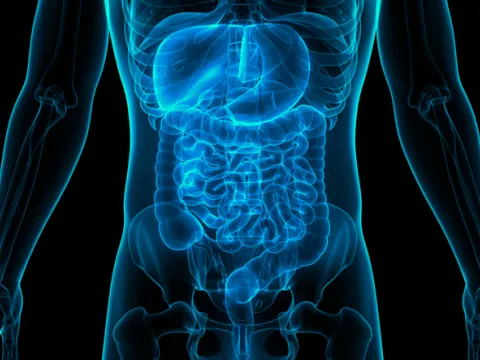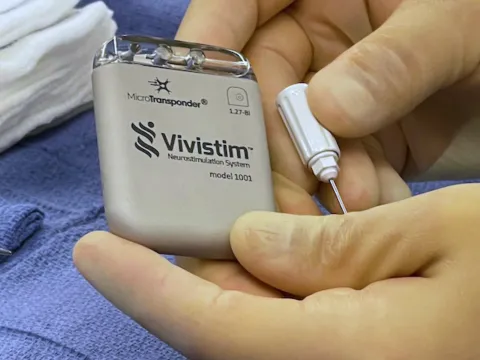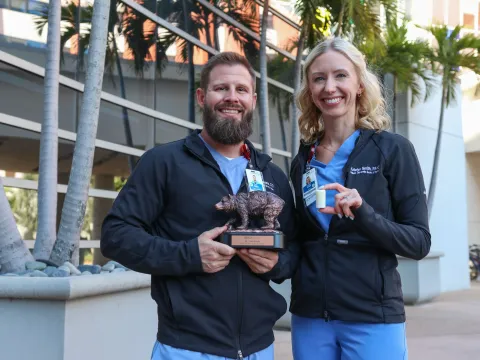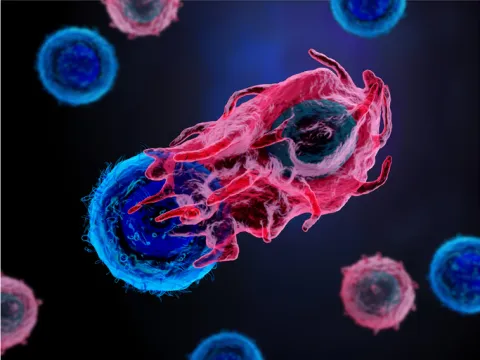- AdventHealth
The CheckMate 901 Phase III clinical trial results, recently published in the New England Journal of Medicine, found that combining the programmed death 1 (PD1) inhibitor immunotherapy nivolumab with gemcitabine-cisplatin chemotherapy increased survival rates for patients with unresectable or metastatic urothelial carcinoma. This was the first Phase III trial with a chemo-immunotherapy combination to demonstrate a statistically significant and clinically meaningful survival benefit over standard-of-care cisplatin-based chemotherapy in the first-line treatment of this patient population. AdventHealth Clinical Research Unit (CRU) Executive Director and Medical Director of Genitourinary Oncology Guru Sonpavde, MD, served as a principal investigator for the trial in his previous position with Dana–Farber Cancer Institute, Harvard Medical School, and was co-first author of the article.

Executive Director, AdventHealth Clinical Research Unit
“There has long been an unmet need for a more effective treatment for patients with advanced urothelial carcinoma,” shares Dr. Sonpavde. “It’s been decades since we’ve had an advancement like this.”
Treating Advanced Urothelial Carcinoma
For more than 20 years, platinum-based chemotherapy has served as the standard of care for previously untreated patients with unresectable or metastatic urothelial carcinoma, with cisplatin-based chemotherapy the preferred treatment. This approach has shown a response in more than 40% of patients and a median overall survival of approximately 15 months.
“Prior to the CheckMate 901 trial, no new agent had improved overall survival when added to first-line cisplatin-based chemotherapy,” explains Dr. Sonpavde.
The Emergence of Immunotherapy
Nivolumab is an antibody directed against PD-1 and is approved for the treatment of patients with locally advanced or metastatic urothelial carcinoma after previous platinum-based chemotherapy as well as for adjuvant treatment of high-risk muscle-invasive urothelial carcinoma after radical resection. The Phase III CheckMate 901 trial sought to determine whether nivolumab in combination with ipilimumab or in combination with standard-of-care cisplatin-gemcitabine chemotherapy was more effective than standard-of-care chemotherapy alone in treating participants with previously untreated inoperable or metastatic urothelial carcinoma.
CheckMate 901 Trial Results
In this Phase III, multinational, open-label trial, patients with previously untreated unresectable or metastatic urothelial carcinoma were randomly assigned to receive either intravenous nivolumab (at a dose of 360 mg) plus gemcitabine–cisplatin (nivolumab combination) every 3 weeks for up to six cycles, followed by nivolumab (at a dose of 480 mg) every 4 weeks for a maximum of 2 years, or to receive gemcitabine–cisplatin alone every 3 weeks for up to six cycles. The primary outcomes were overall and progression-free survival.
A total of 608 patients were included in the study — 304 randomized to each group. Key results included the following:
- With a median follow-up of approximately 33 months, overall survival was longer with nivolumab-combination therapy than with gemcitabine–cisplatin alone, yielding a 22% reduction in the risk of death.
- Prolonged median duration of CR was 37.1 months with nivolumab-combination therapy vs. 13.2 months with gemcitabine–cisplatin alone.
- The risk of death or disease progression in the nivolumab-combination therapy treatment arm was reduced by 28%.
- The overall objective response was 15% higher in the treatment arm: 57.6% (complete response, 21.7%) with nivolumab-combination therapy and 43.1% (complete response, 11.8%) with gemcitabine–cisplatin alone.
- The complete response (CR) rate improved to 21.7% vs. 8%
- No new safety concerns were observed.
“The CheckMate 901 study results offer new hope to patients with advanced urothelial carcinoma,” says Dr. Sonpavde. “This breakthrough exemplifies the powerful potential of immunotherapy to help improve outcomes, and at AdventHealth Cancer Institute, we remain committed to bringing cutting-edge clinical trials and treatments to patients with any malignancy. This includes RNA-based therapies, targeted drugs, antibody drug conjugates and novel immunotherapies such as T-cell engagers and CAR-T cell therapies.”
Recent News
The AdventHealth Neuroscience Institute is the first in Florida and one of the first in the country to begin recruiting patients with primary progressive or non-active secondary progressive multiple...
Accurately determining food intake remains a challenge in nutrition research. A new study published in Nature Metabolism and co-authored by Dr. Corbin introduces a metagenomics-powered approach to...
Discover what’s being accomplished in Central Florida to bridge the health gap with Orange County Mayor Jerry Demings and AdventHealth’s Dr. Alric Simmonds.
Breakthrough device offers new hope for stroke survivors struggling with rehabilitation following ischemic stroke
Jennifer Seminerio, MD, recently became one of the first in Florida to use intestinal ultrasound (IUS) to help assess and manage treatment of patients with inflammatory bowel disease (IBD). A non...
The Convergent Hybrid Ablation procedure has been gaining acceptance as an effective treatment option for long-standing persistent atrial fibrillation (AFib) since the CONVERGE trial data published in...
Recently, AdventHealth for Children pediatric orthopedic surgeon Sean Keyes, DO, Katelyn Smith, PA-C, and their team performed their 100th bridge-enhanced anterior cruciate ligament (ACL) repair (BEAR...
Physician leaders from AdventHealth’s emergency department, infectious disease, inpatient, pediatrics and pharmacy teams all collaborated to develop a respiratory virus testing algorithm to assist...
Thoracic surgeon Colleen Gaughan, MD, and her team at AdventHealth Celebration, recently became one of the first in the country to incorporate targeted imaging agent Cytalux (pafolacianine) as part of...
On the newest Inspiring Wholeness podcast, Obie Diaz, local morning radio show host, shares how a routine physical eventually led to two open heart surgeries.
AdventHealth recently began piloting a new Genomics Risk Assessment for Cancer and Early Detection (GRACE) program that combines the use of digital mammography, artificial intelligence (AI) technology...
AdventHealth Clinical Research Unit (CRU) Executive Director and Medical Director of Genitourinary Oncology Guru Sonpavde, MD, co-authored an article on the AMBASSADOR Phase III clinical trial results...












